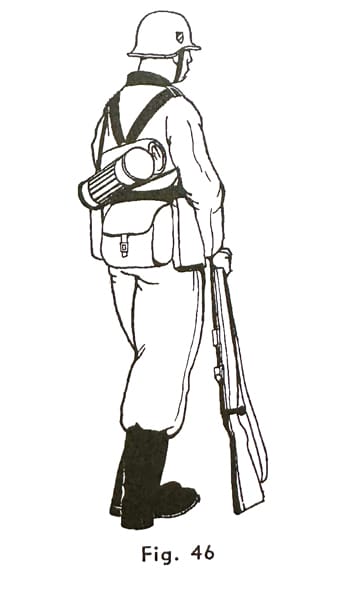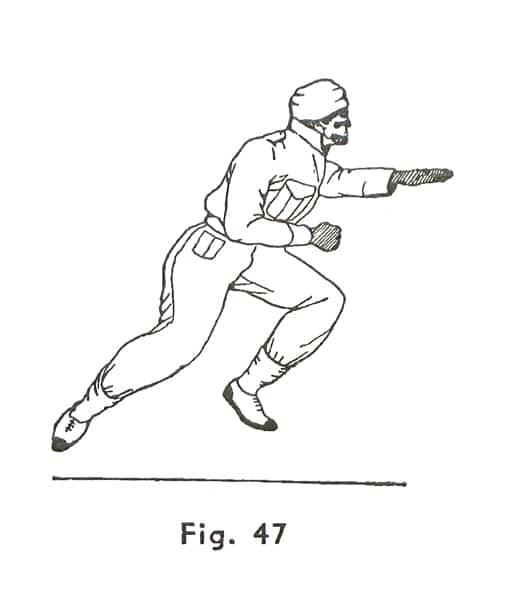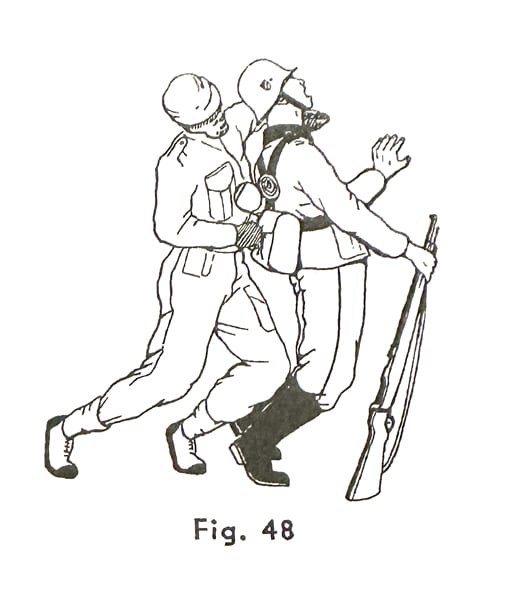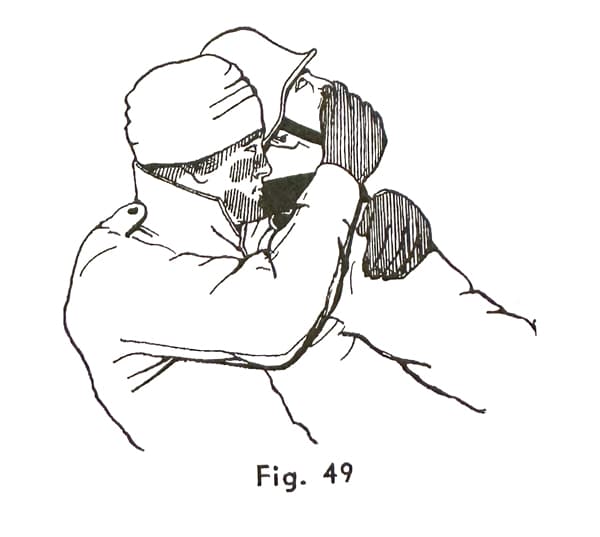
When this week’s podcast guest, John Lisle, talked about William Fairbairn in our discussion of the Office of Strategic Services, I was duly intrigued. I wanted to learn more about the work of this fascinating character, so I bought a complete compendium of his books.
Fairbairn was a Royal Marine, learned multiple martial arts, and engaged in 600 street fights over his lifetime, which left him covered in scars from head to toe. From his firsthand experiences in what he called “gutter fighting,” he developed his own no-holds-barred close combat defense system. He trained the Shanghai police force between the world wars and Allied special operators and the OSS during WWII in it.
Much of what Fairbairn taught centered on how to escape from holds and defend against armed assaults. He also offered training on more unique skills, like how to incapacitate an attacker using a metal matchbox.
One of the skills he shared in Get Tough! How to Win in Hand-to-Hand Fighting often shows up in the movies: taking out a guard who runs the risk of spotting you and raising the alarm as you conduct some secret op. Below you’ll find Fairbairn’s instructions for how to pull off this sneak attack.
____________________________________
The Sentry Hold

The successful execution of this method of attack on a sentry — presupposing thorough mastery of every move — depends entirely on careful preparation. First, the man selected to make the attack should be an expert at stalking. The stalk or approach should be made during the hours of dark or semi-dark, and the sentry should be kept under observation long enough for the attacker to familiarize himself with the sentry’s movements and equipment.
Now let us assume that conditions are somewhat as follows:
The sentry’s rifle is slung or carried on his right shoulder.
He is wearing a steel helmet covering the back of his neck and his ears.
He is wearing a respirator on the small of his back, projecting as much as six inches (see Fig. 46).
There are other sentries within shouting distance.
These conditions are not too favorable for the attacker, but are what might have to be met, and training should be carried out under conditions as near as possible to those which would be met in actual war.

Note: The stalker should not be handicapped with any equipment, other than a knife or a pistol. He should wear rubber or cloth shoes, socks pulled up well over the trousers, cap-comforter well pulled down, with the collar of his blouse turned up and his hands and face camouflaged. (See Fig. 47)
1. Approach the sentry from behind to within three to four feet and take up the position shown in Fig. 47. This will permit you to make a lightning-like attack by springing on him.

2. With the fingers and thumb of your left hand fully extended, strike him across the throat with the inner edge of your left forearm (i.e., with the forearm bone), and simultaneously punch him with your clinched right hand in the small of his back or on his respirator case (Fig. 48).
The effect of these blows, if applied as above, will render your opponent unconscious or semi-unconscious. Further, the blow on the throat will cause your opponent to draw in his breath, making it impossible for him to shout and give the alarm.

3. The blow should be immediately followed with a very fast movement of your right hand from the small of his back, over his right shoulder, clapping it over his mouth and nose (Fig. 49). This will prevent him from breathing or making a noise if the blow on the throat was not effectively applied.
Very likely the blows on his throat and in the small of his back will cause him to drop his rifle or will knock his helmet off his head. Should this happen, do not attempt to prevent their falling on the ground. Just keep still for about ten seconds, after which it is unlikely that anyone having heard the noise will come to investigate. Retaining your hold around his neck with your left arm, drag him away backwards.
Note: The extraordinary effectiveness of this hold will be readily understood if you have a friend apply it on you as above, being careful to exert no more than one-twentieth of the required force.
The post How to Take Out a Sentry appeared first on The Art of Manliness.
0 Commentaires